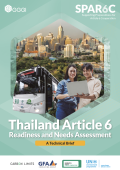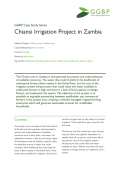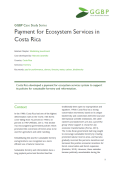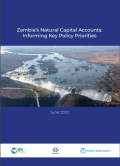Browse by:
Type
Sector
Country
- Afghanistan (1)
- Albania (1)
- Antigua and Barbuda (2)
- Argentina (1)
- Australia (4)
- Austria (3)
- Bahamas (3)
- Bahrain (2)
- Bangladesh (6)
- Barbados (2)
- Belgium (2)
- Belize (5)
- Benin (3)
- Bhutan (4)
- Bolivia (3)
- Bosnia and Herzegovina (1)
- Botswana (5)
- Brazil (14)
- Bulgaria (1)
- Burkina Faso (1)
- Cabo Verde (2)
- Cambodia (8)
- Cameroon (4)
- Canada (24)
- Central African Republic (1)
- Chad (1)
- Chile (3)
- China (27)
- Colombia (10)
- Congo (2)
- Cook Islands (5)
- Costa Rica (12)
- Cuba (1)
- Cyprus (1)
- Czech Republic (3)
- Democratic Republic of the Congo (3)
- Denmark (8)
- Dominican Republic (2)
- Ecuador (5)
- Egypt (3)
- El Salvador (1)
- Equatorial Guinea (1)
- Ethiopia (8)
- Federated States of Micronesia (4)
- Fiji (8)
- Finland (9)
- France (9)
- Gabon (1)
- Gambia (2)
- Georgia (2)
- Germany (10)
- Ghana (9)
- Global (1)
- Greece (2)
- Grenada (2)
- Guatemala (1)
- Guyana (1)
- Haiti (3)
- Honduras (3)
- Hungary (2)
- Iceland (4)
- India (30)
- Indonesia (27)
- Iran (1)
- Ireland (2)
- Italy (11)
- Jamaica (3)
- Japan (11)
- Jordan (5)
- Kazakhstan (5)
- Kenya (18)
- Kiribati (5)
- Kosovo * (1)
- Kyrgyzstan (4)
- Lao (7)
- Lao People's Democratic Republic (2)
- Latvia (1)
- Lebanon (2)
- Liberia (1)
- Madagascar (5)
- Malawi (2)
- Malaysia (5)
- Maldives (7)
- Mali (3)
- Marshall Islands (6)
- Mauritania (2)
- Mauritius (3)
- Mexico (13)
- Moldova (1)
- Mongolia (7)
- Montenegro (2)
- Morocco (6)
- Mozambique (5)
- Myanmar (8)
- Namibia (4)
- Nauru (4)
- Nepal (12)
- Netherlands (10)
- New Zealand (5)
- Niger (1)
- Nigeria (3)
- Niue (6)
- North Macedonia (1)
- Norway (8)
- Pakistan (4)
- Palau (5)
- Papua New Guinea (6)
- Peru (7)
- Philippines (22)
- Portugal (1)
- Qatar (1)
- Republic of Korea (14)
- Republic of Moldova (1)
- Romania (2)
- Rwanda (3)
- Saint Kitts and Nevis (3)
- Saint Lucia (8)
- Saint Vincent and the Grenadines (1)
- Samoa (7)
- Saudi Arabia (1)
- Senegal (5)
- Serbia (2)
- Sierra Leone (3)
- Singapore (2)
- Slovakia (1)
- Slovenia (1)
- Solomon Islands (3)
- South Africa (10)
- Spain (2)
- Sri Lanka (7)
- Sudan (1)
- Suriname (4)
- Sweden (9)
- Switzerland (2)
- Tajikistan (3)
- Tanzania (10)
- Thailand (13)
- Timor-Leste (3)
- Togo (1)
- Tonga (2)
- Trinidad and Tobago (7)
- Tunisia (4)
- Türkiye (1)
- Turkmenistan (2)
- Tuvalu (4)
- Uganda (14)
- Ukraine (4)
- United Arab Emirates (1)
- United Kingdom of Great Britain and Northern Ireland (15)
- United States of America (24)
- Uruguay (1)
- Uzbekistan (7)
- Vanuatu (8)
- Viet Nam (16)
- Zambia (6)
- Zimbabwe (3)
Region
Theme
- Climate Change (240)
- Natural Capital (199)
- Development (118)
- Indicators and Measurement (88)
- Institutions and Governance (87)
- Cities (70)
- Infrastructure (65)
- Circular Economy (60)
- Risk and Resilience (51)
- Technology and Innovation (36)
- Consumption (31)
- Poverty and Equity (29)
- Investment (27)
- Standards and Regulations (27)
- Market Mechanisms (23)
- COVID-19 (20)
- Jobs (19)
- Fiscal Instruments (18)
- Gender (16)
- Trade and Supply Chains (11)
- Health (9)
- Government Procurement (8)
- Sustainable, Green, and Social Bonds (3)

This technical brief aims to highlight the key recommendations after assessing the readiness and need of Zambia to implement mitigation activities under the Article 6 of the Paris Agreement framework. This assessment is part of the Supporting Preparedness for Article 6 Cooperation (SPAR6C) program, a German-funded initiative led by GGGI with a consortium including Carbon Limits, GFA Consulting, Kommunalkredit Public Consulting, and United Nations Environment Programme Copenhagen Climate Centre.
Related Case Studies

In the context of international carbon markets under the Paris Agreement, "readiness" refers to the preparedness of a country to effectively engage in Article 6 collaboration. Involving the development of policies, infrastructures and capacities that enable strategic participation in Article 6 activities, readiness is crucial because it allows both seller...

The Chiansi area in Zambia is characterised by poverty and underutilization of available resources. The water that could transform the livelihoods of subsistence farmers flows nearby in the Kafue River, but the cost of the irrigation system infrastructure that could make this water available to small-scale farmers is high and...

Costa Rica developed a payment for ecosystem services system to support its policies for sustainable forestry and reforestation.

